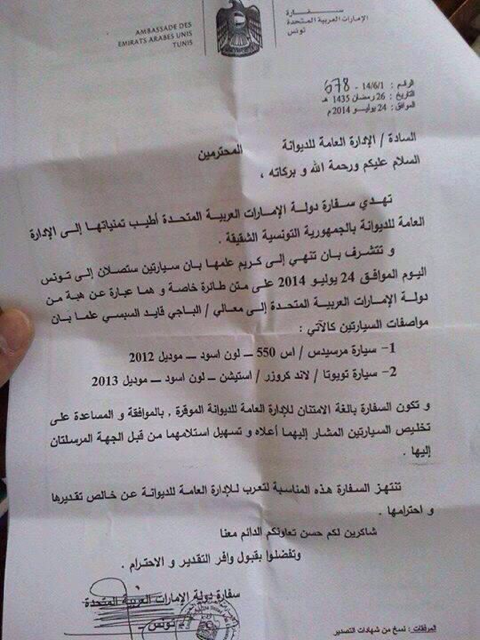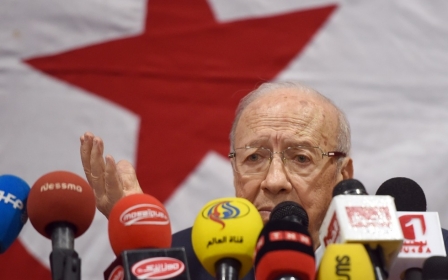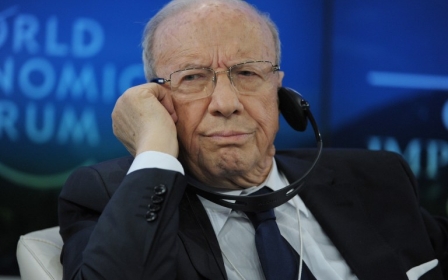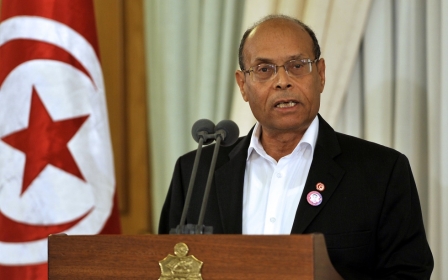'Luxury' cars and a foreign funding scandal in Tunisia
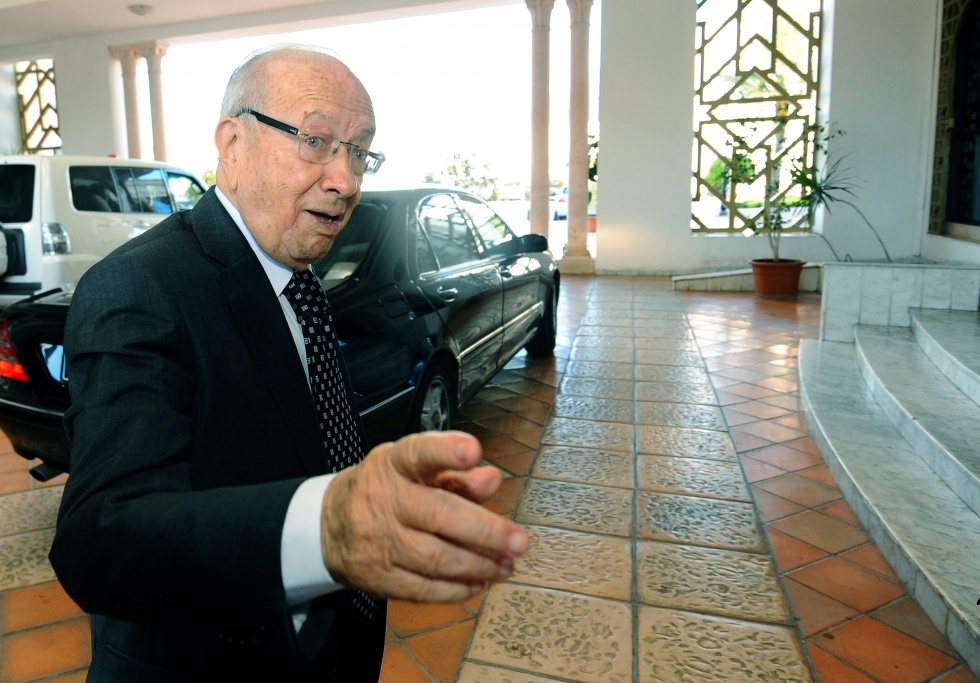
A gift of two bullet-proof armoured cars given by the United Arab Emirates to a prominent Tunisian opposition leader has sparked controversy and accusations of political corruption.
Beiji Caid al-Sebsi, former prime minister and head of the opposition Nida Tounes party, received the two cars on 26 July after they touched down in Tunis from the UAE.
However, the provenance of the cars, described by Tunisian media as “luxury vehicles”, only came to light last week after the leak of a tax document regarding the gift.
The news has provoked anger particularly because of Tunisia’s stringent rules prohibiting foreign funding for any political party, brought in shortly after the 2011 ouster of former President Zine el-Abidine Ben Ali.
Moncef Kharroubi, a university professor and translator, told MEE the gifts prove that Tunisian politicians “have little regard for the laws prohibiting foreign funding of political parties.”
He said he was unsurprised by the scandal – “in the present transitional period, disrespect for the law has become commonplace as offenders feel they are immune from legal repercussions.”
In response to such allegations, Nida Tounes stressed that the gift was above board, calling the leak from the state tax bureau “fresh evidence of the political affiliations prevalent within the institutions of the state.”
A day later, however, Sebsi’s legal representative wrote to the caretaker Prime Minister Mehdi Jomaa offering to surrender the cars to the Tunisian state.
In a letter published on the party’s Facebook page, the lawyer Rida Belhaj claimed that the gift, from “dear Emirati friends”, was sent as a result of “numerous threats” on Sebsi’s life.
Rania Klibi, a former radio journalist, also spoke to MEE about the possible implications of the gift.
“In return for the gift, what is required of Sebsi? That’s the real question. There must be an aim behind this act. It comes after Sebsi visited the Emirates to garner support from this key Arab country. For their part, the Emiratis are aiming to bolster their power in Tunisia in all fields: economic, social and political.”
Sebsi visited the UAE for three days in May 2014, citing “decades-long intimate relations between Nida Tounes and Emirati leaders.”
Sebsi, who worked as a diplomat and civil servant under Ben Ali, has been a prominent political figure since Tunisian independence in 1956.
Radwan Masmoudi, president of the Centre for the Study of Islam and Democracy, was concerned that the gift represents growing foreign influence on domestic Tunisian affairs in the run-up to nationwide elections to replace the country’s caretaker government.
"The UAE is doing everything it can to derail and thwart the democratic transition in Tunisia. This gift to Sebsi and Nida Tounes is a clear violation of Tunisia's party laws and an attempt to create havoc just two or three months before the upcoming legislative and presidential elections.”
Sebsi’s opposition Nida Tounes party seeks to provide a counterweight to the Ennahda, an Islamist party that until January 2014 led Tunisia as part of a coalition government.
In opposition circles, Ennahda has often been accused of receiving financial aid from Qatar, an allegation which the party denies.
(Additional reporting by Mamoon Alabbasi)
New MEE newsletter: Jerusalem Dispatch
Sign up to get the latest insights and analysis on Israel-Palestine, alongside Turkey Unpacked and other MEE newsletters
Middle East Eye delivers independent and unrivalled coverage and analysis of the Middle East, North Africa and beyond. To learn more about republishing this content and the associated fees, please fill out this form. More about MEE can be found here.


